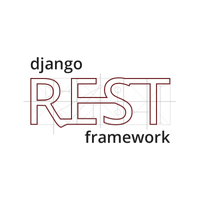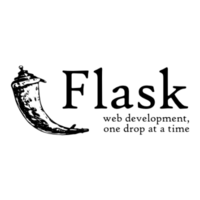Need advice about which tool to choose?Ask the StackShare community!
Flask vs Waitress: What are the differences?
Introduction:
This Markdown code presents the key differences between Flask and Waitress, focusing on six specific points. Markdown is a lightweight markup language that can be utilized for formatting text on websites. Flask is a micro web framework written in Python, while Waitress is a Python web server gateway interface (WSGI) server.
1. Scalability: Flask is designed to handle small to medium-sized applications where simplicity and flexibility are crucial. It allows for easy prototyping and quick development. On the other hand, Waitress is a WSGI Python server that is more suitable for production environments, offering better scalability and performance. It is capable of handling larger workloads and can efficiently process multiple requests simultaneously.
2. Purpose and Functionality: Flask primarily focuses on providing a bare-bones framework for building web applications. It offers essential features like routing, templating, and request/response handling. In contrast, Waitress is solely a server that handles HTTP requests and transfers them to a WSGI application. Its main task is to serve applications built with frameworks like Flask by acting as a bridge between the web server and the application.
3. Deployment and Configuration: Flask is often used with web servers like Waitress, as it requires a server to handle requests. However, Flask can also be deployed using other web servers like Gunicorn or Nginx. On the other hand, Waitress can be easily integrated with any WSGI framework, including Flask, Django, or Pyramid. It requires minimal configuration and can be started with a single command.
4. Performance and Speed: Flask's simplicity allows for faster development, but it may not be as performant as Waitress for handling larger workloads. Waitress, being a dedicated WSGI server, is optimized for performance, making it a better choice for high-traffic and resource-intensive applications. It employs efficient algorithms and optimized code to handle requests and deliver faster responses.
5. HTTP Features: Flask includes basic HTTP features, like request/response processing, cookie handling, and URL routing. However, it does not provide built-in support for advanced features like WebSocket communication or HTTP/2. Conversely, Waitress supports more advanced HTTP functionality, making it advantageous for applications that require these features. It offers WebSocket support and the ability to handle HTTP/2 requests.
6. Community and Documentation: Flask has a larger and more active community due to its popularity and longevity in the Python ecosystem. This vast community ensures a wider variety of resources, tutorials, and third-party packages available. Waitress has a smaller community but still provides sufficient documentation and support for developers. The difference in community size can impact the availability of community-driven plugins and extensions.
In summary, Flask and Waitress differ in scalability, purpose, deployment, performance, HTTP features, and community support. Flask is a lightweight web framework focused on simplicity, whereas Waitress is a production-ready WSGI server designed for scalability and performance with advanced HTTP features.
My journey to developing REST APIs started with Flask Restful, and I've found it to be enough for the needs of my project back then. Now that I've started investing more time on personal projects, I've yet to decide if I should move to use Django for writing REST APIs. I often see job posts looking for Python+Django developers, but it's usually for full-stack developers. I'm primarily interested in Data Engineering, so most of my web projects are back end.
Should I continue with what I know (Flask) or move on to Django?
If you want to be a Web developer with knowledge in another frontend and NoSql technology, maybe continue with Flask. However, if you want to create very fast solutions to grow up with a new business and merge these with data analysis and other tools, Django is the answer. Basically read more about the service architecture where you feel more comfortable, Microservice or Monolithic, but please will not married with any because they solve issues to different contexts.
Which is the best Python framework for microservices?
We are using Nameko for building microservices in Python. The things we really like are dependency injection and the ease with which one can expose endpoints via RPC over RabbitMQ. We are planning to try a tool that helps us write polyglot microservices and nameko is not super compatible with it. Also, we are a bit worried about the not so good community support from nameko and looking for a python alternate to write microservices.
Bottle is much less bloated and fast. Its built-in templating system is one of the fastest as it compiles the templates in bytecode. Also Bottle has no depenencies, preventing dependency bloat.
I have just started learning Python 3 weeks ago. I want to create a REST API using python. The API will be used to save form data in an Oracle database. The front end is using AngularJS 8 with Angular Material. In python, there are so many frameworks to develop REST APIs.
I am looking for some suggestions which REST framework to choose?
Here are some features I am looking for:
Easy integration and unit testing, like in Angular. We just want to run a command.
Code packaging, like in java maven project we can build and package. I am looking for something which I can push in as an artifact and deploy whole code as a package.
Support for swagger/ OpenAPI
Support for JSON Web Token
Support for test case coverage report
Framework can have features included or can be available by extension. Also, you can suggest a framework other than the ones I have mentioned.
For starters flask provides a beautiful and easy way to create REST APIs. Also its supported by excellent beginner docs as well as a very active community. Another good thing with Flask is its widely available list of plugins which allow you to build as you go. Its also good in performance and can scale to a quite decent level. However, if you are sure your project is going to be fairly big, it would be better to start with Django as it provides a lot of features out of the box and is extremely stable in performance. Both these frameworks have support for Swagger, JWT, Coverage Report although you have to install plugins for them. Deploying both of these are fairly simple and there is huge documentation available. Django has one of the best documentations I have come across. I hope I was able to answer your queries.
Pros of Flask
- Flexibilty14
- For it flexibility10
- Flexibilty and easy to use9
- Flask8
- User friendly7
- Secured6
- Unopinionated5
- Orm3
- Secure2
- Beautiful code1
- Easy to get started1
- Easy to develop and maintain applications1
- Not JS1
- Easy to use1
- Documentation1
- Python1
- Minimal1
- Lightweight1
- Easy to setup and get it going1
- Perfect for small to large projects with superb docs.1
- Easy to integrate1
- Speed1
- Get started quickly1
- Customizable1
- Simple to use1
- Powerful1
- Rapid development1
- Open source0
- Well designed0
- Productive0
- Awesome0
- Expressive0
- Love it0
Pros of Waitress
- Runs on Windows2
- Cross Platform1
- Fast1
- Light1
- Reliable1
- Easy setup1
Sign up to add or upvote prosMake informed product decisions
Cons of Flask
- Not JS10
- Context7
- Not fast5
- Don't has many module as in spring1



























